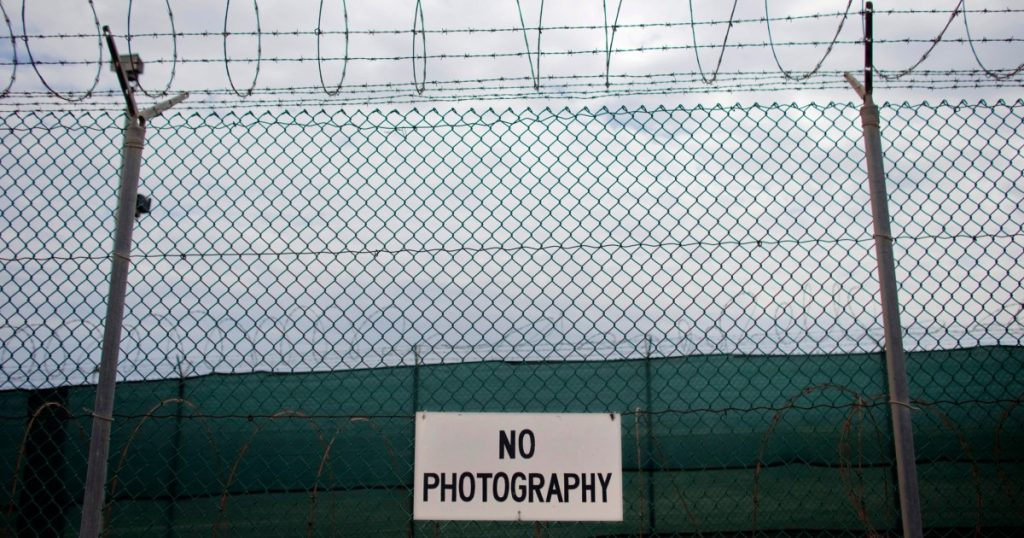The United States has transferred 11 Yemeni detainees from the Guantanamo Bay detention center to Oman, marking a significant step in the ongoing effort to reduce the prison’s population and eventually close the controversial facility. These detainees, held for over two decades without charge as part of the “war on terror,” represent a fraction of the hundreds of individuals apprehended from various countries following the September 11 attacks. The transfer, welcomed by human rights organizations like Amnesty International, underscores the enduring legacy of Guantanamo as a symbol of human rights abuses. While the move signals progress, the continued operation of the prison remains a contentious issue, with calls for its closure persisting even as the Biden administration nears its end.
The transfer of the Yemeni detainees to Oman highlights the complex and often protracted nature of detention at Guantanamo. Among the released detainees is Sharqawi al-Hajj, whose case exemplifies the enduring struggle against indefinite detention. Al-Hajj endured 21 years of imprisonment at Guantanamo, preceded by two years of CIA detention and alleged torture. His repeated hunger strikes and hospitalizations served as a stark protest against his captivity, a testament to the desperate measures taken by detainees to assert their rights and demand their freedom. His release, along with the other 10 Yemeni detainees, brings a sense of hope and underscores the human cost of prolonged detention without charge.
The gradual reduction of the detainee population at Guantanamo reflects a shift in US policy, albeit a slow and often contested one. From its peak of nearly 800 prisoners, the facility now holds only 15 individuals. This decrease, while significant, leaves behind a complex legacy of human rights violations and legal challenges. The establishment of Guantanamo under the Bush administration, initially intended to hold suspects indefinitely without charge or legal recourse, drew widespread condemnation from human rights organizations and international bodies. The conditions of confinement and treatment of detainees have been persistently criticized, with the facility becoming synonymous with torture, indefinite detention, and a disregard for due process.
The recent releases, including the 11 Yemenis, a Tunisian national held since 2002, a Kenyan arrested in 2007, and two Malaysians detained for 18 years, all without charges, highlight the ongoing efforts to address the legal and ethical dilemmas posed by Guantanamo. These releases, while welcomed, underscore the long-overdue nature of these actions and the enduring impact of prolonged detention on the lives of these individuals. The fact that these individuals were held for years, even decades, without being charged with a crime raises serious questions about the legal basis for their detention and the fairness of the process they were subjected to.
The future of Guantanamo remains uncertain. Despite President Biden’s campaign promise to close the facility, it continues to operate weeks before the end of his term. The administration’s efforts to find host countries willing to accept detainees represent a pragmatic approach to reducing the prison’s population, but the ultimate goal of closure remains elusive. Of the remaining 15 detainees, six are uncharged, three of whom have been cleared for transfer. The other nine face charges related to the USS Cole bombing, the 9/11 attacks, and the Bali bombings. The complex legal proceedings surrounding these cases, coupled with the political sensitivities surrounding Guantanamo, make the prospect of complete closure a challenging one.
The transfer of the 11 Yemeni detainees to Oman represents a positive step towards addressing the legacy of Guantanamo. However, the continued existence of the facility, even with a significantly reduced population, serves as a persistent reminder of the human rights abuses and legal controversies that have marked its history. The ongoing efforts to find solutions for the remaining detainees, including those cleared for transfer and those facing charges, will be crucial in determining the ultimate fate of Guantanamo and its place in the narrative of the “war on terror.” The international community continues to watch closely as the US grapples with the complex legal and ethical questions surrounding the remaining detainees and the future of this controversial detention center.

